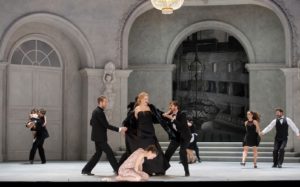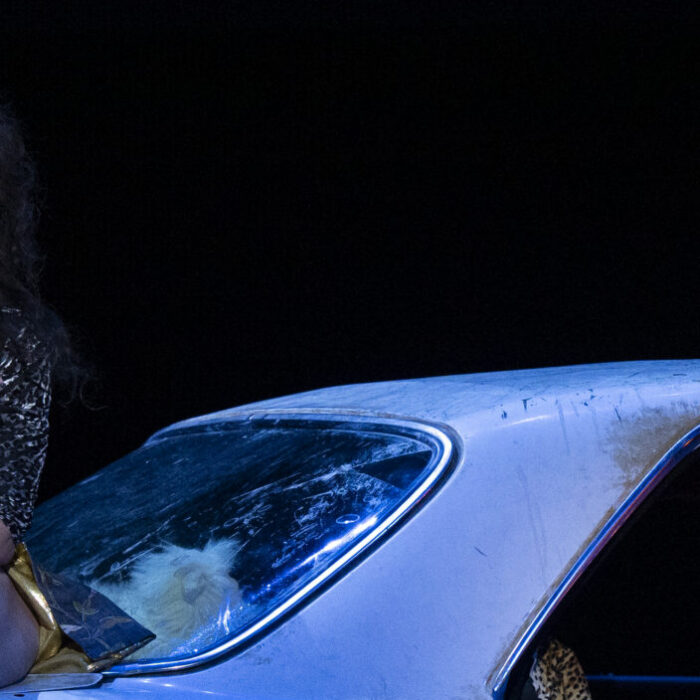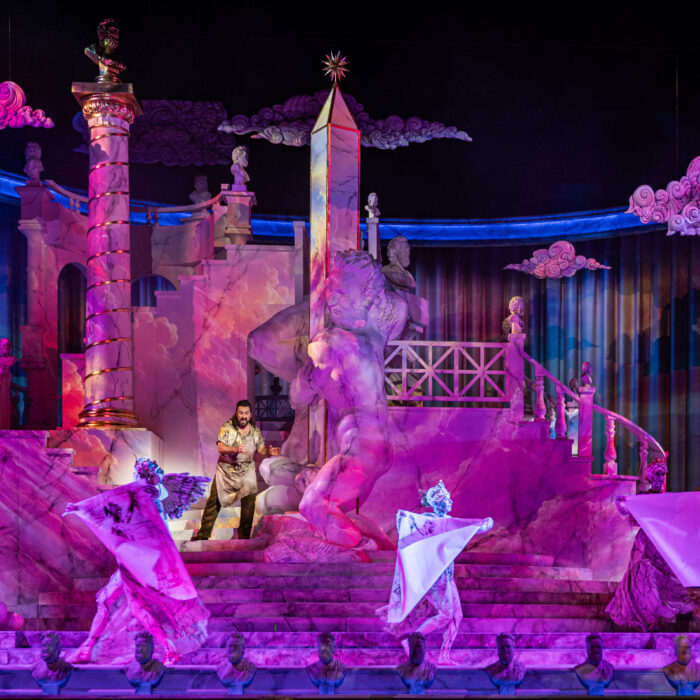
Teatro Real de Madrid 2020-21 Review: Rusalka, Cast B
Olesya Golovneva Leads a Memorable Musical Showcase of Dvorak’s Masterpiece
By Mauricio VillaThis review belongs to the performance on the 24th of November 2020
The times when the quality of the first cast at the Teatro Real de Madrid was supposed to be “superior” to that of the second cast are long past. In more recent times we saw it in “Ballo in Maschera” last month with soprano Sondra Ravdanovsky in the “third” cast. This season’s cast of “Rusalka” provides a similar example where in many ways, the supposed “Cast B” was a better fit for this production and opera than the cast members that preceded them. The quintet of principal singers matched up very well together; their voices blended perfectly with other singers and the orchestra; their acting was superb; and to completely honest, they proved one of the best casts I’ve ever heard in this opera. Full stop.
In the title role, Olesya Golovneva was the biggest surprise of the night. She has a round velvet timbre, completely equal throughout her whole register, and a voice which grows in volume as she reaches the highest notes. Her B flats and the two B naturals of the second act were simply mesmeric. The voice reverberates around you in a manner that is simply too complex to describe. But I will say that it feels sublime to listen to. She grew with the character from the fragile disabled ballet dancer (again being forced to performed steps on point by the staging) who sweetly and melancholy sings the famous “Song to the moon,” to the frustrated human being who is abandoned by her lover, to the final redemption which goes beyond love. She was hypnotic every time she was on stage.
American tenor David Butt Philip interpreted the prince with his beautiful lyric voice. The center of his voice is extraordinarily strong, which is perfect for this score, which is written in that very area. His phrasing and legato were impeccable in Czech, and his ascensions to the several A flats and naturals were brave, secure, and strong. His only vocal problem was the high C in Act three as the sound came off as unstable. Despite that, he managed to hold the note. His interpretation was ardent and amorous as well as remorseful in Act three, when he managed to create a final magical love duet with Golovneva .
The water gnome Vodnik was interpreted by German bass Andreas Bauer Kanabas. A Wagner specialist, he produced an open and robust sound throughout. His role is short but the tessitura is very high compared to the rest roles of the opera. The score has the bass constantly signing between D and E, and has a maintained F sharp in Act two; Kanabas dispatched all of these challenging passages with potency. The high F sharp in Act two was thunderous and threatening, cutting through the dense orchestral sound.
Okka Von Der Damerau sang the role of the witch Jezibaba. With her metallic sound and deep dark low register, the role of the witch suited her like a glove. She was also strangely believable as the witch.
Rebecca Von Lipinski portrayed the short role of the princess. Incredibly determined and brave, she came on stage without any pretense and blasted out an amazing B flat and high C in her very first lines. Her high notes were so rotund and strong that the whole performance seemed like a test to see who had the biggest voice. Her timbre was dark and sensual, which suited the sexy approach of the princess in this production.
Every single one of these artists should be on everyone’s radar.
Overall, this was an amazing cast of singers that blended perfectly with the orchestra to create a magical performance. The performance was so memorable from a musical perspective that it made one overlook the question production as directed by Christof Loy.


